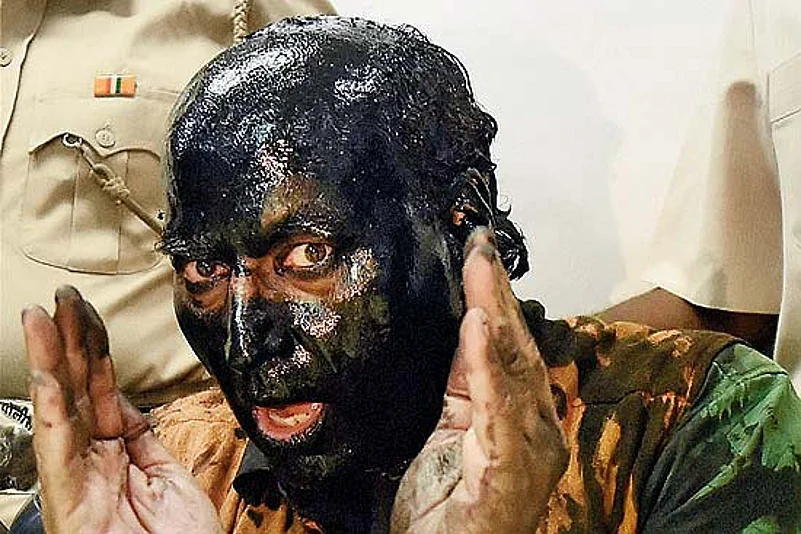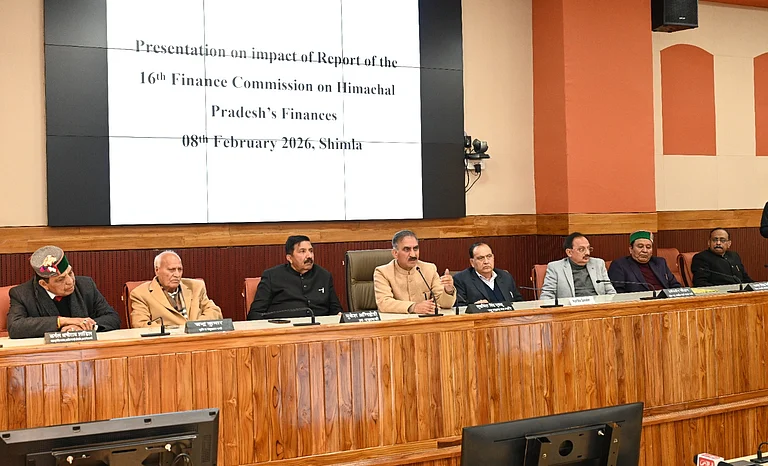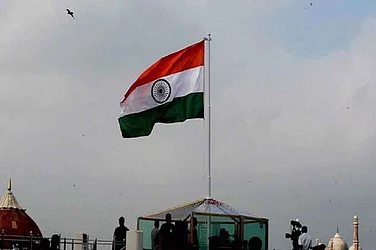If Saadat Hasan Manto, the master of the short story and the only true minstrel of Mumbai, were alive today, he would have never managed a public storytelling session for Mumbaikars. Nor would he have managed to put up a retrospective of films of his old friends, stars and colleagues. Not because the fire and fever of Manto’s stories have died 68 years after Partition, but because Manto’s Bombay has long given way to Shiv Sena’s Mumbai. Also, Manto would be a Pakistani in the eyes of the Sena’s sainiks bristling with nationalism. His Indian roots would have little meaning in today’s circus of jingoism.
Last week, even as urbs prima in Indus quietly celebrated the 19th anniversary of its rechristening to Mumbai from its earlier British identity, no one was left in any doubt about its new personality—India’s most cosmopolitan city shackled by the competitive parochialism, communalism and majoritarianism of the BJP and the Shiv Sena. A ban on beef, followed by a blanket ban on sale of meat. A cancelled ghazal concert of a Pakistani artiste. Black paint on the face of an organiser hosting the launch of a book by a Pakistani. Thankfully, a brief respite from the all-round bad news came from the Supreme Court, which overturned a stay on dance bars.
No story on Bal Thackeray, the late Shiv Sena ‘supremo’, is ever complete without mandatory references to his love for the good life: a glass of beer at lunch, Javed Miandad’s spunky cricket, Michael Jackson’s catwalking, and M.F. Husain’s art. But after Uddhav Thackeray felicitated those who wasted ink and paint which his father could have made better use of as a cartoonist, and his young son Aditya defended the shameful attacks in the name of soldiers, it became clear that every generation of the Sena, whose party symbol is the tiger, is finding it ever more difficult to get off the animal which is devouring the city’s very soul.
“We have gotten used to the tail wagging the dog, but the fact of the matter is the dog gives a tuppence to the tail. However, in the past 15 months, we have seen greater lumpenisation of politics and a phenomenal rise of intolerance, accompanied by intimidation and even violence. There have been riots under the Congress too. No one is lily white. But the difference is that now the state authorities choose to look away or keep mum when there are blatant attempts at discrimination,” says veteran journalist and analyst Dileep Padgaonkar.
Ironic as it may sound, the BJP and the Sena are taking turns at converting Mumbai into a regressive space—a task left unfinished by 15 years of Congress rule—and yet are at each others’ throats. But many believe the current spat has less to do with Pakistan or Hindu religious beliefs.
Hypocrisy is the hallmark of the new transaction. Bal Thackeray’s daughter-in-law Smita (see Deep Throat) was to host Ghulam Ali over dinner. Every second Bollywood film has a hit by Rahat Fateh Ali Khan. Sena high-ups book Atif Aslam for private concerts at family weddings. Somehow, it all gets out of hand in public. So what do Pakistani artistes singing in Bollywood do now? Their managers are clear: they will steer clear of Maharashtra because “there are enough private wedding concerts to do in India”. Perhaps, Mumbai will be knocked off celebrated Sufi singer Abida Parveen’s itinerary this winter.
The bets are on whether the row over recent incidents will prove to be the final nail in the coffin for the troubled BJP-Sena alliance in Maharashtra. Both parties have said plenty and more, with an eye on local body elections. On November 8, when Ghulam Ali performs in Delhi, instead of singing Hungama kyun hai barpaa, perhaps the sub-continent’s last existing ghazal maestro may opt for Shameem Jaipuri’s couplet: “Sab ko bulandiyon ka saleeqa nahi shameem/ Woh sar pe chad rahey the ke dil sey utar gaye” (Everyone doesn’t know how to behave when in power. Those who were climbing the power ladder have fallen from grace.)
By Prarthna Gahilote and Prachi Pinglay-Plumber in Mumbai


























